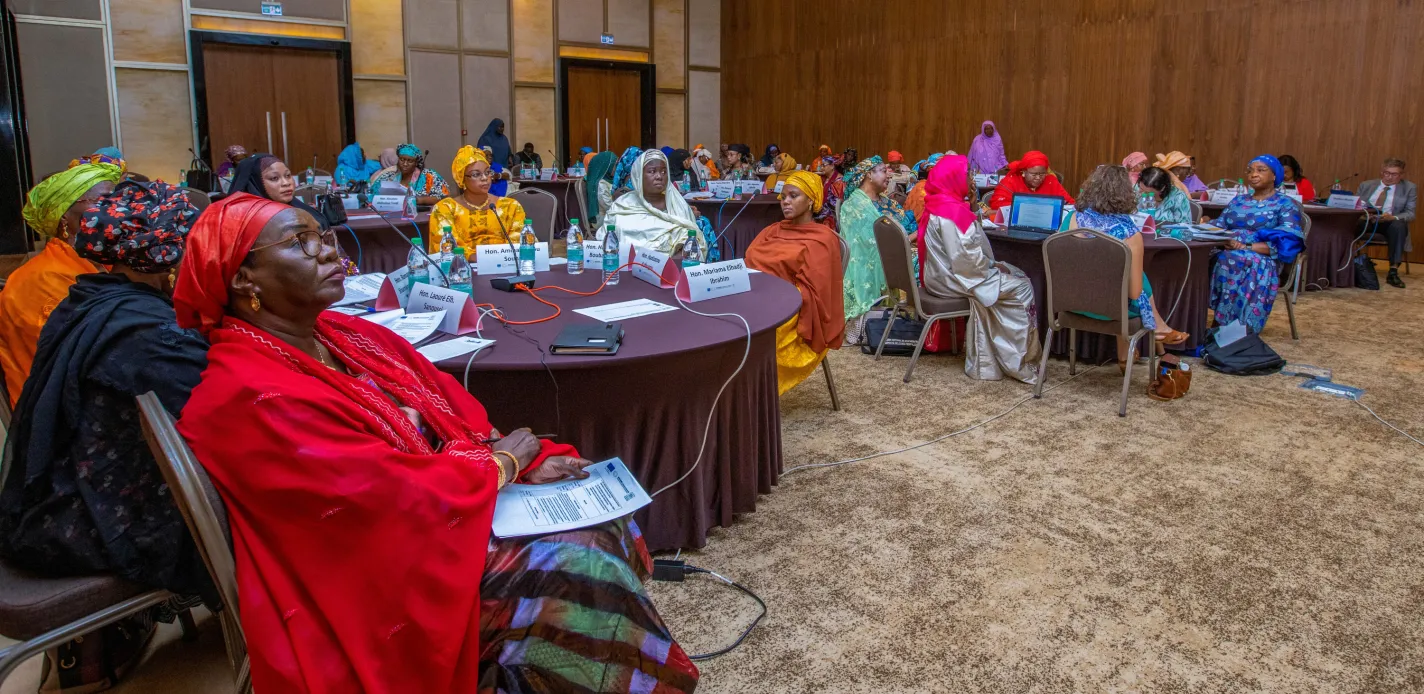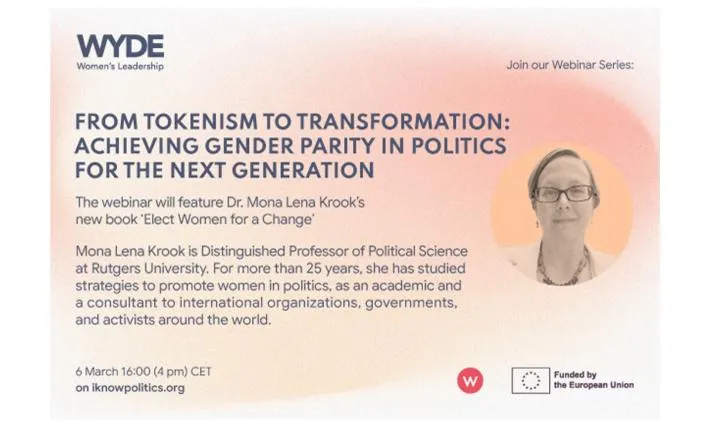Gender-sensitive parliaments: Telling the stories of who and what makes change happen

This year, INTER PARES - the EU-funded project to strengthen parliaments around the world, will launch new research that aims to answer the question: how does gender-sensitive parliamentary change happen?
For over a year, an expert team led by Silvia Erzeel at Vrije Universiteit Brussel and Petra Ahrens at Tampere University has been gathering stories of change from parliaments in the EU and around the world, directly from the people involved.
The stories will provide insights and inspiration to other parliaments striving to become more gender-sensitive. It will also demonstrate how more gender-sensitive parliaments lead to better policies and laws, benefitting all citizens.
The publication will tell the stories of how:
• The Irish Women’s Parliamentary Caucus influenced the government’s decision to introduce free period products through public services,
• MPs in South Africa mobilized men by holding 'men's parliaments' to tackle gender-based violence and femicide, and to support men’s mental health in relation to the practice of circumcision,
• German MPs brought political and public attention to the rarely-discussed issue of menopause, potentially leading to changes to medical fees and university curricula, as well as to the creation of funding for research on the topic,
• Parliaments in Georgia, Pakistan, and Malaysia have promoted and undertaken gender budgeting activities,
• Allegations of misconduct in the Australian Parliament led to major changes to the institution, to create a safer and more respectful workplace for MPs and staff, and
• The Parliament of Trinidad and Tobago uses its public gallery to draw attention to women artists and gender issues,
… and many more.
To read the publication when it is published later this year, follow @InterParesEU on X, or check www.inter-pares.eu




